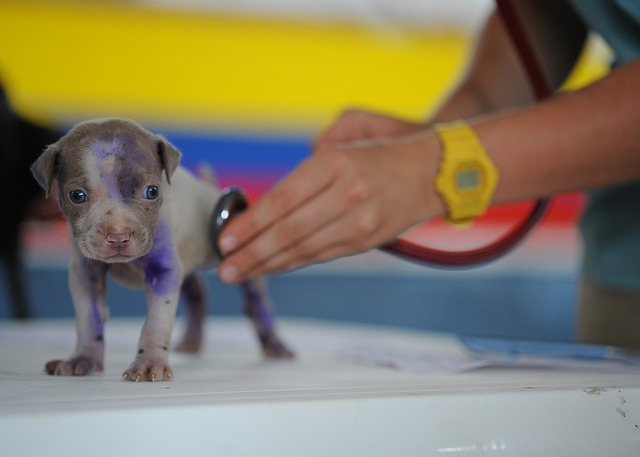Are you currently stuck in the mental black hole that is depression? Do you worry that your life is never going to get better and that you will never feel normal again? Maybe the words “happy” and “fun” have lost all meaning in your life. Perhaps your life has become a charade of pretending to the world that you’re okay when you actually feel empty inside.
The good news is that it is possible to feel normal again. The better news is that owning a dog is one tool that may make a huge difference in your battle against depression. Keeping in mind that therapy and/or medication should still be an important part of your journey toward feeling better, here are 6 amazing ways that dogs can help those suffering from depression.

How a dog can help
Owning a dog can provide a wide variety of both physical and mental benefits, which of course go hand in hand. Anybody who’s ever been treated for depression or another mental illness has been told repeatedly how important diet, exercise, and other healthy lifestyle choices are for improving your mental health.
Of course, those same mental health professionals don’t seem to understand how incredibly difficult it can be to make those sorts of changes when you are suffering from depression. Here are some ways having a dog can help you feel better, both physically and mentally.
-Exercise. The greatest benefit of having a dog over a cat is that dogs must be taken outside for walks. Sure, a small dog could be trained to use potty pads, and people with enclosed yards may not feel the need to take their dog on an actual walk, but all dogs (and their people) benefit from regular walks.
Getting a dog with the knowledge that it will need to be walked can be a great way to start improving your health. Plus, a lack of sunlight is proven to have a negative effect on people’s mental health, so walking a dog can force you to get outside and expose yourself to some much-needed Vitamin D.

-Meeting new people. Taking your dog for a walk or to the dog park is a great way to meet other people who love dogs as much as you do. Depression can be very isolating, so meeting people is crucial to starting the process of feeling better.
-Companionship. Everybody needs to feel loved, and if you can’t get that from humans, a dog is a great way to receive the unconditional love you may be craving. Studies have shown that companionship provided by dogs can lower blood pressure, reduce cholesterol, and lead to fewer or less severe heart attacks. Unfortunately, loneliness and depression go hand in hand, so having a pet is a great way to combat loneliness, which can help improve symptoms of depression.

-Reducing anxiety. Pets are proven to help reduce anxiety in people. Between their excellent cuddling skills and their ability to listen to your worries without interrupting, dogs can be a great distraction from the nightmare of excessive anxiety that may accompany depression.
-Routine. Dogs need a routine to be happy. They like to be fed and walked at the same times every day. It turns out, people thrive on routines as well. Once you develop a good routine for your dog, you can start adding healthy activities to your own routine, which can help speed your recovery.
-Stress relief. Petting a dog is a proven way to reduce stress levels.

What you should consider before getting a dog
-Dogs need time and attention. Your dog doesn’t care if you’re too depressed to get out of bed – he still needs walked, fed, and loved. This can be a benefit, if you need a reason to get out of bed in the morning, but you may grow to resent your dog for needing love you feel incapable of giving.
-They may be destructive. Dogs need training, guidance, exercise, and attention. Without all of these, they may become destructive. They might pee or poop in the house, chew up your favorite pair of shoes, or dig holes in the back yard. If you can’t stand the possibility of having some destruction in your life, you should seriously consider not adding a dog to your life – or at least avoid getting a young puppy who hasn’t learned the rules of the world yet.

-Taking care of a pet is a big responsibility. For some people who struggle with depression, the responsibility of caring for a pet can lead them to taking better care of themselves. For others, the responsibility of caring for another living thing when they are incapable of caring for their own basic needs can be overwhelming. You should carefully consider how you might react to having the added responsibility of caring for a pet.
-Costs can add up. Adopting a dog can cost $70-300 or more. Buying a puppy usually costs even more than that. Then you need to factor in a collar and leash, food bowls, treats, food, grooming, vaccinations and other vet visits, and various other expenses. These costs can add up quickly, especially if your dog becomes sick or injured.
It’s not fair to your dog to get matted because you can’t afford to get him groomed or be in pain because you can’t afford to take him to the vet. The first-year cost of adopting and caring for a dog can easily top $1000. If you’re on a limited income, you should think carefully before adding a dog to your family.

Should your dog be certified as an Emotional Support Animal (ESA)?
There are numerous websites that will sell you a fake certification to claim your pet is an Emotional Support Animal (ESA) in order to allow you to bring your dog onto airplanes and into pet-free housing without any fees, but these websites are all fraudulent.
There is no national registry for service dogs or emotional support animals. The only legitimate way to have an ESA is to have a certified mental health professional or a physician write a prescription for an ESA saying that your pet is part of a continuing treatment program. You should be currently under a therapy and/or medication program with the aim of improving your depression or mental illness.
While ESAs are allowed into housing and onto airplanes, they do not have all the same rights as service dogs. They are not allowed into restaurants or other businesses that forbid pets. For more on the difference between service dogs, emotional support animals, and therapy dogs, check out this article.

Other ways to help improve symptoms of depression
Of course, getting a dog shouldn’t be the only option you consider to improve your depression. Therapy and/or medication can make a huge difference in your quality of life. The trick is to find a mental health professional that you like and trust, which can be easier said than done, especially if you don’t have exceptional health insurance.
The good news is that there are many different types of therapy and tons of different medications to help you out. The bad news is that it can take a long time to figure out which treatments work best for you. It takes an incredible amount of patience, but you don’t have to feel like this forever.

You don’t need somebody else to tell you, but it’s important to mention again the importance of a healthy diet and exercise program when it comes to improving your mental health. The long-term health effects from eating, exercising, or even sleeping too much or too little can stick with you long after your mental health improves, and as they say, an ounce of prevention is worth a pound of the cure.
There are a number of “alternative” treatments for depression ranging from supplements to acupuncture to meditation. It’s up to you to do the research and understand the risks and benefits of each. Alternative treatments often work best in conjunction with more traditional methods of improving depression rather than as standalone treatments.
For more information on pet adoption and the mental health benefits of pet ownership, check out TheRecoveryVillage.com.
If your depression is severe enough that you are suffering from suicidal thoughts, please do not hesitate to ask for help. Call 911 or the suicide hotline at 1-800-273-8255 or visit Suicide Prevention Lifeline.
As a fellow sufferer (I have bipolar disorder with recurrent depression), I can promise you that it does get better. The key to getting better is to BE PERSISTENT about getting help. It may take a long time to feel better, but I promise you that the effort is worth it!
(H/T: Help Guide, WebMD, Help Guide)

